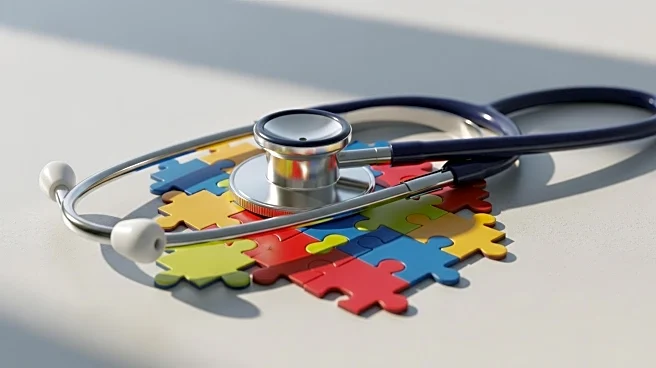What is the story about?
What's Happening?
Robert F. Kennedy Jr. has made claims linking early circumcision and Tylenol use in infants to autism, which have been widely criticized by medical professionals. Kennedy cited studies suggesting circumcised children have higher autism rates, attributing this to Tylenol exposure. However, experts, including Dr. Mona Amin and Dr. Lauren Hughes, have refuted these claims, stating there is no credible evidence supporting a link between Tylenol or circumcision and autism. The American Academy of Pediatrics maintains that acetaminophen is safe for children when used as directed. Kennedy's statements have been labeled as misinformation, potentially causing confusion and fear among parents.
Why It's Important?
Kennedy's claims contribute to the spread of misinformation, which can lead to public fear and misunderstanding about autism and its causes. This misinformation may influence parental decisions regarding circumcision and the use of Tylenol, despite the lack of scientific evidence supporting these claims. The medical community stresses the importance of relying on peer-reviewed research and established guidelines to make informed health decisions. The controversy highlights the need for clear communication from health authorities to counteract false narratives and ensure public trust in medical advice.
What's Next?
Medical professionals and organizations are likely to continue addressing misinformation by providing evidence-based information to the public. There may be increased efforts to educate parents on the complexities of autism and the importance of genetic factors over unproven environmental links. Health authorities might also consider campaigns to reinforce the safety of common medical practices and medications, such as circumcision and acetaminophen use, to prevent unwarranted fear and confusion.
Beyond the Headlines
The debate over Kennedy's claims underscores the broader issue of how misinformation can impact public health decisions and perceptions. It raises ethical concerns about the responsibility of public figures to provide accurate information and the potential consequences of spreading unverified claims. This situation also highlights the importance of scientific literacy and critical thinking in evaluating health information, encouraging individuals to seek reliable sources and consult healthcare professionals.

















